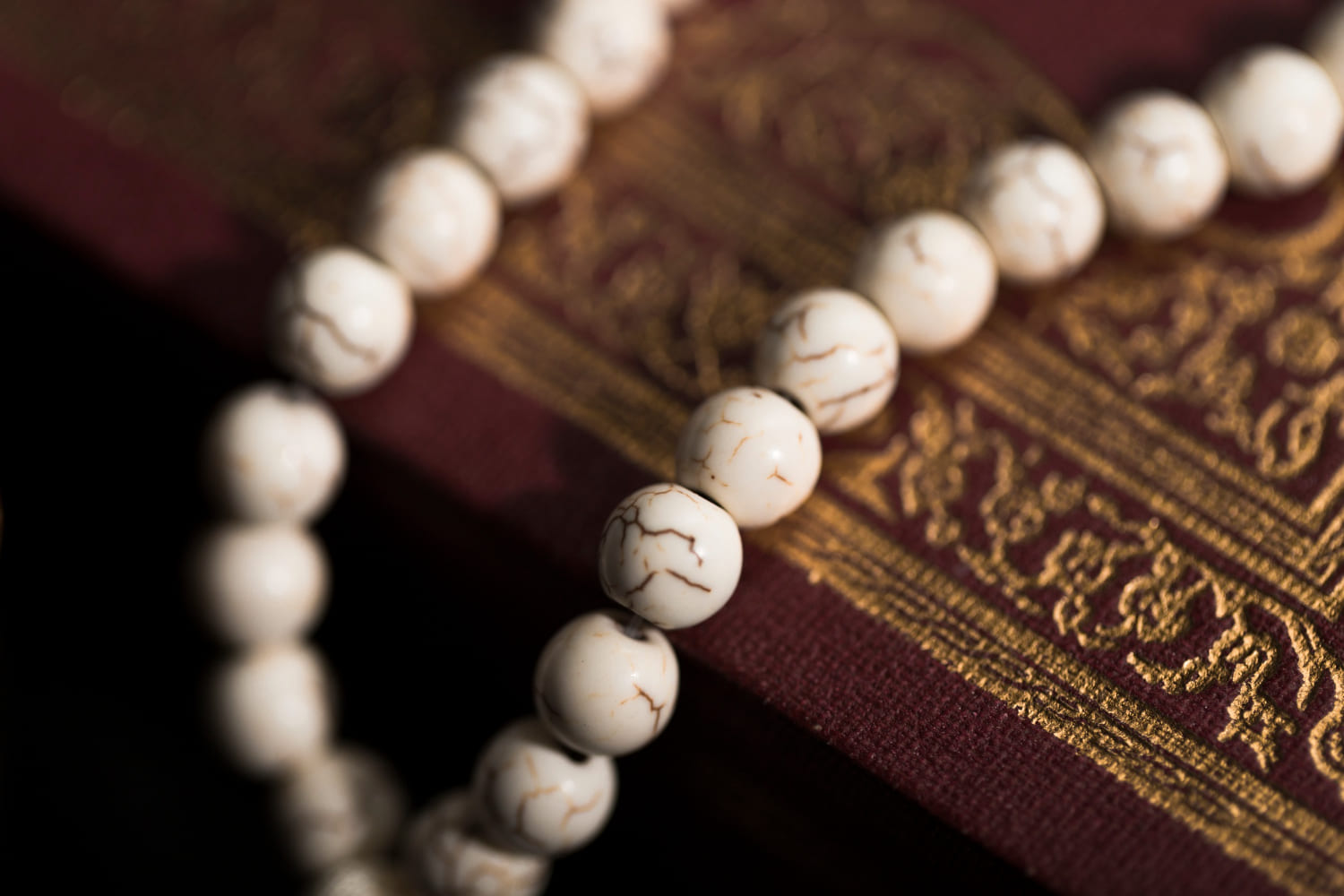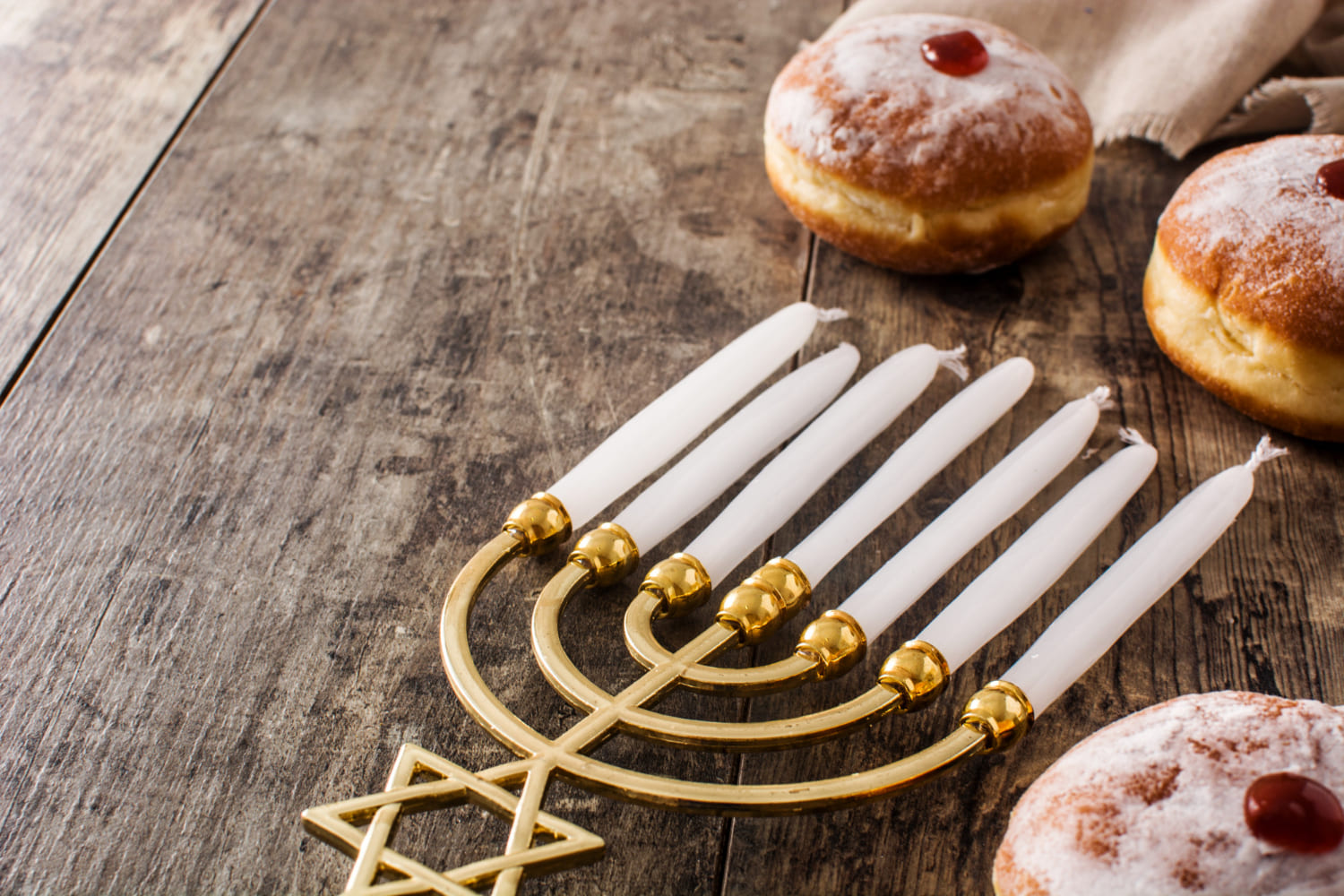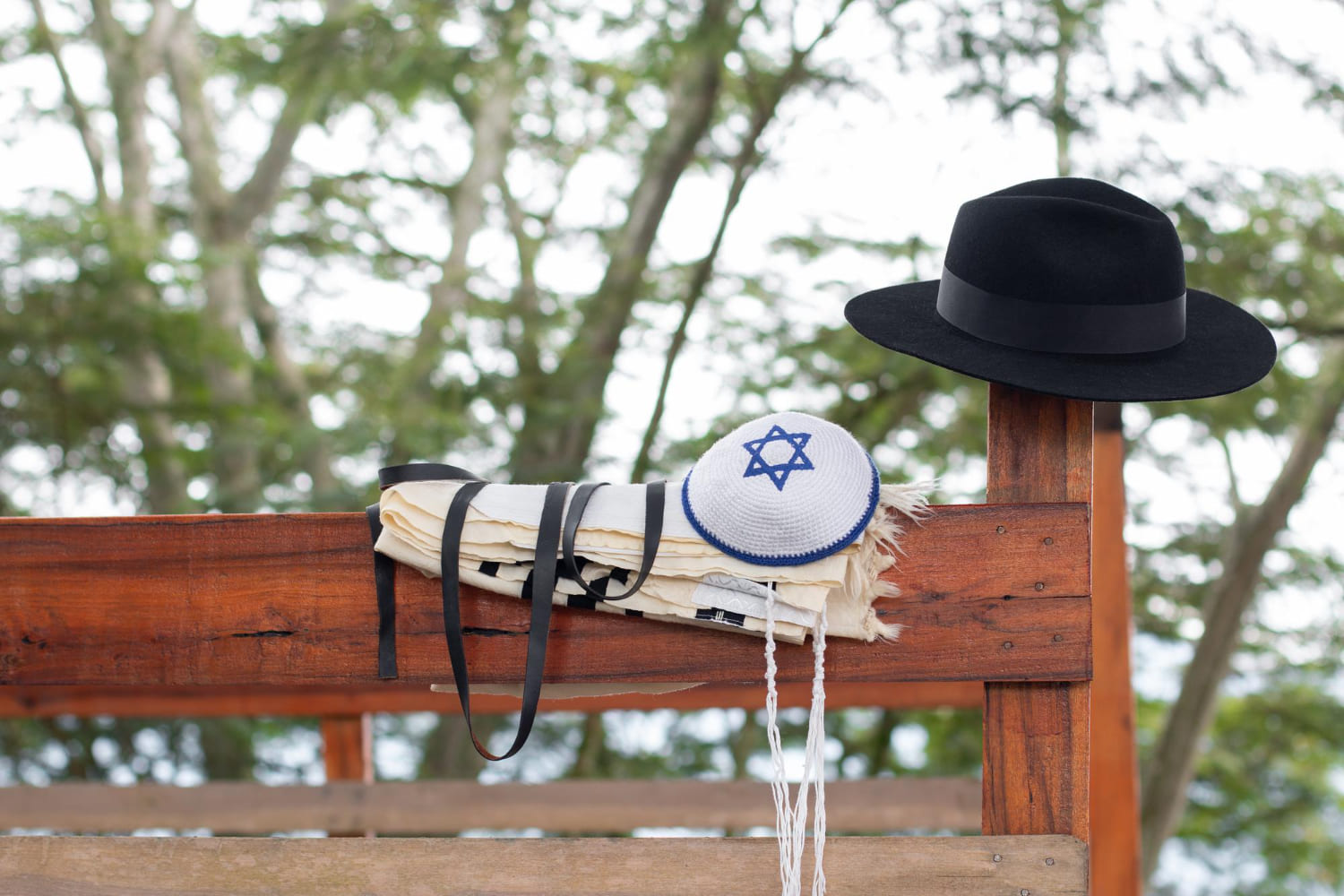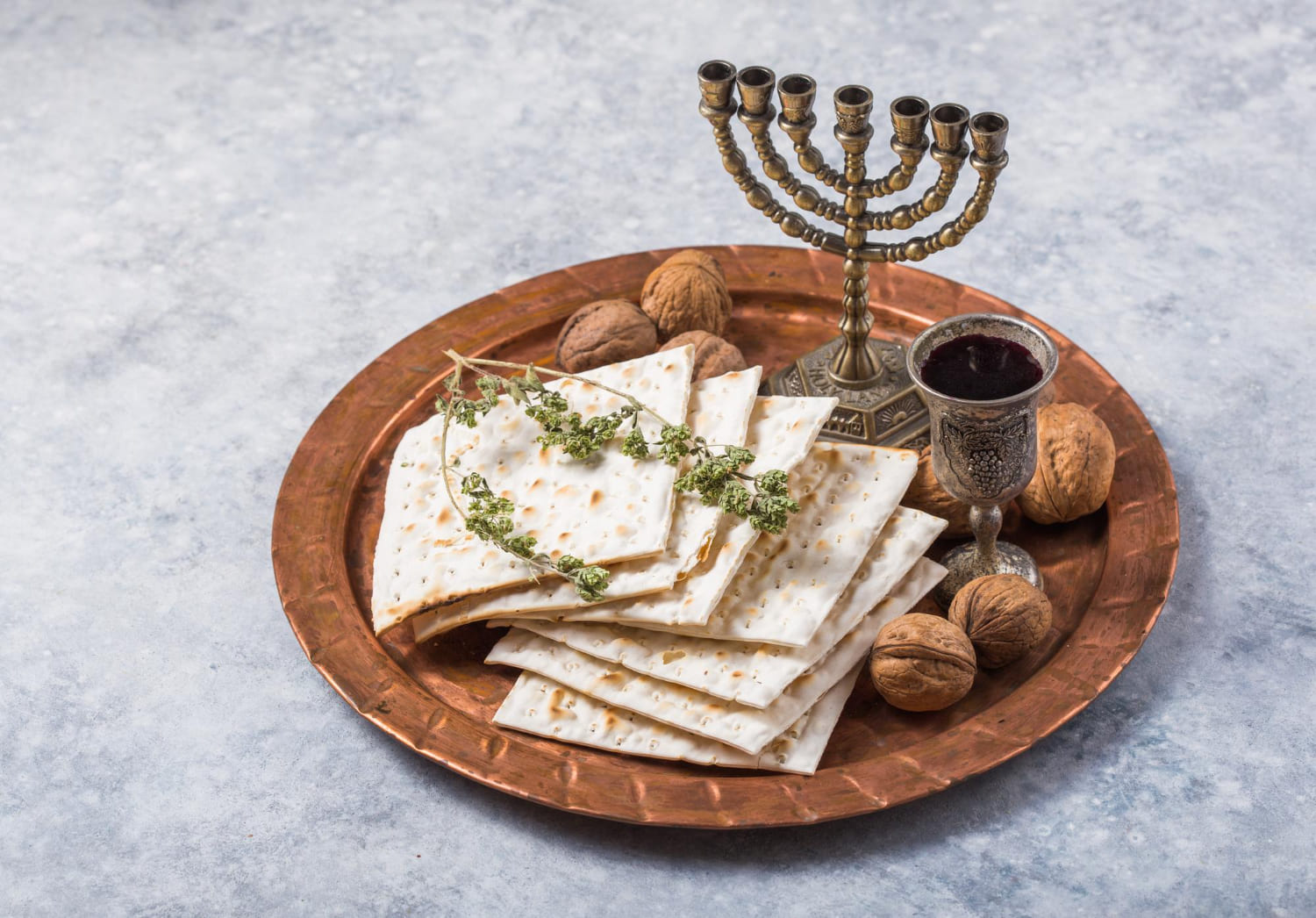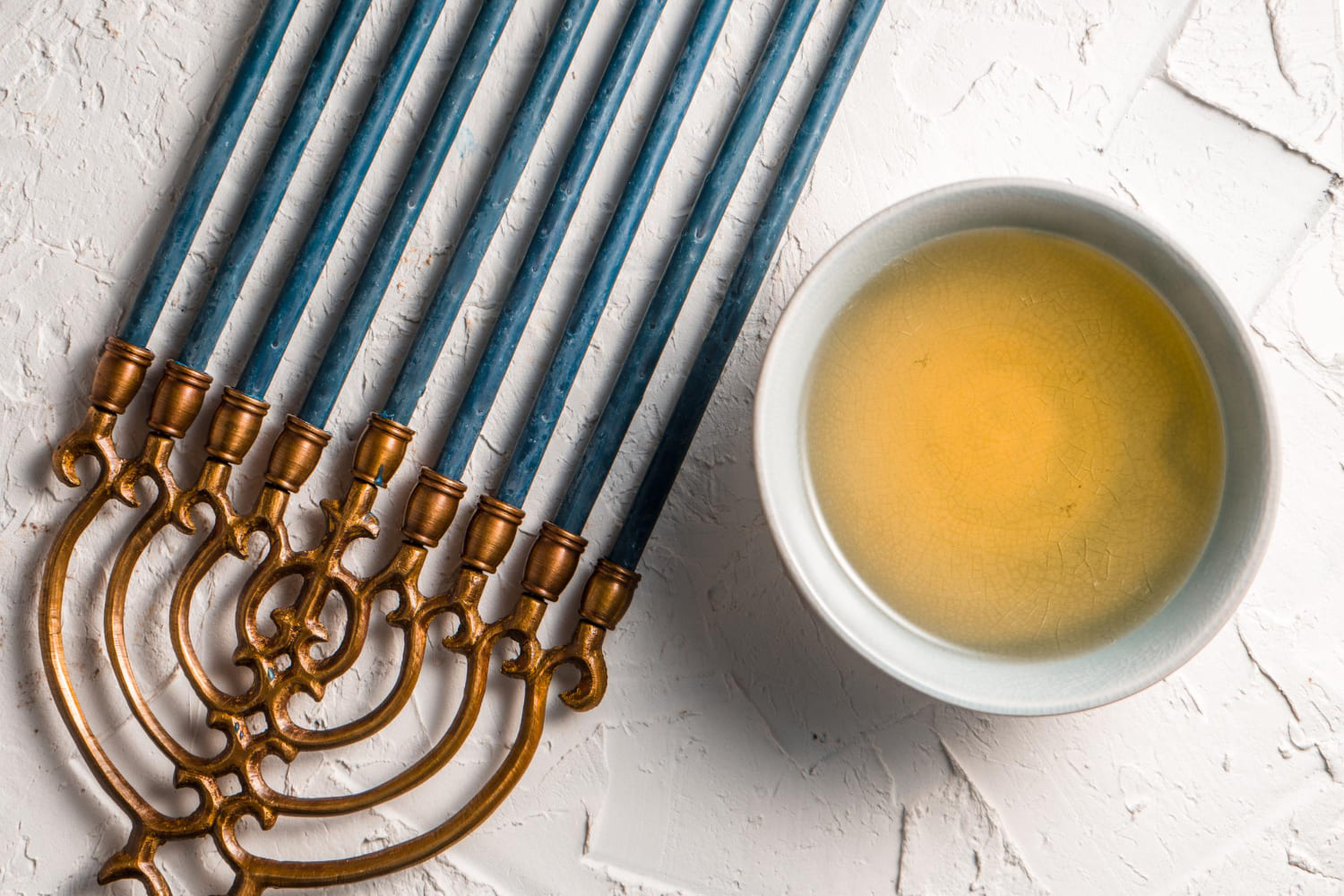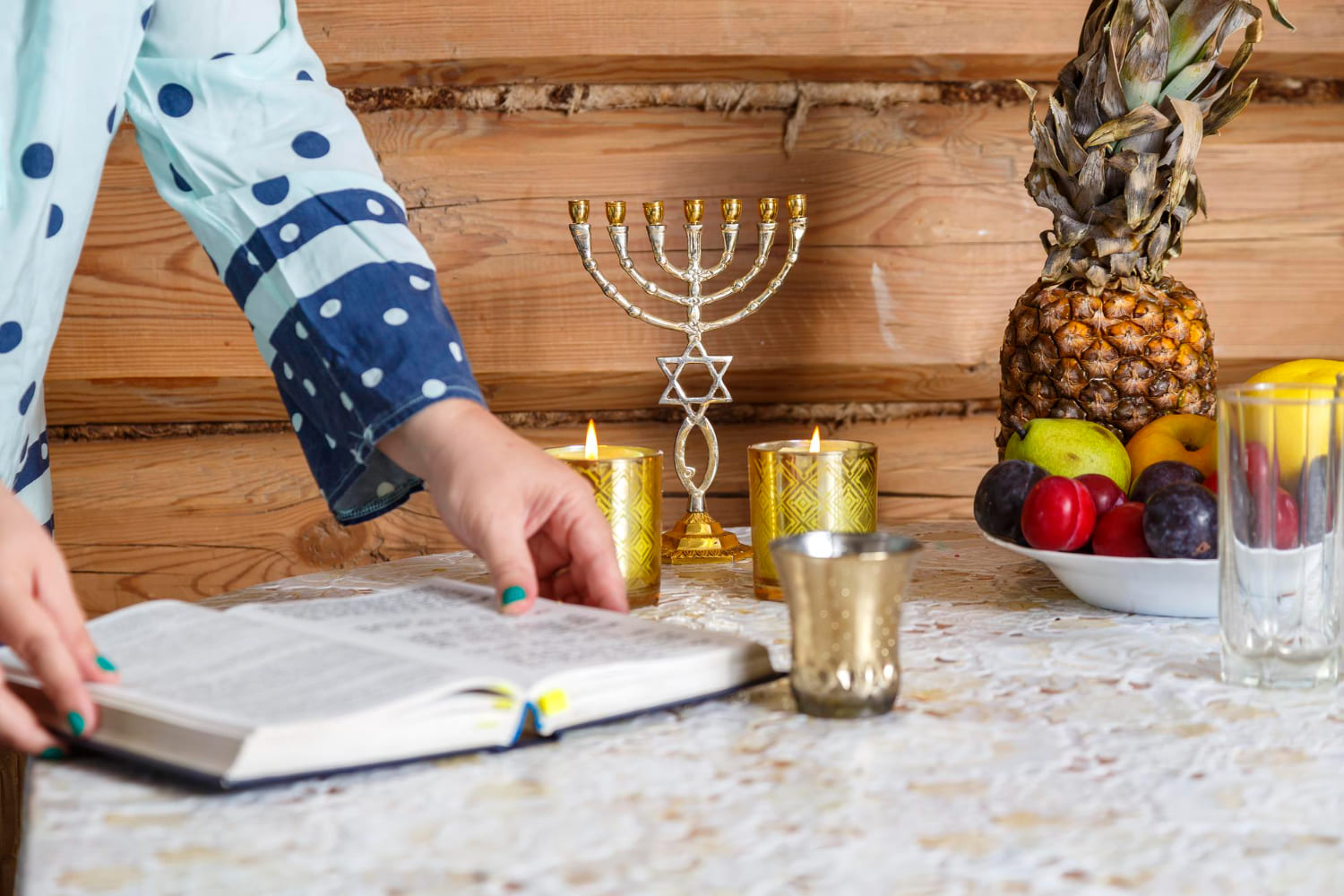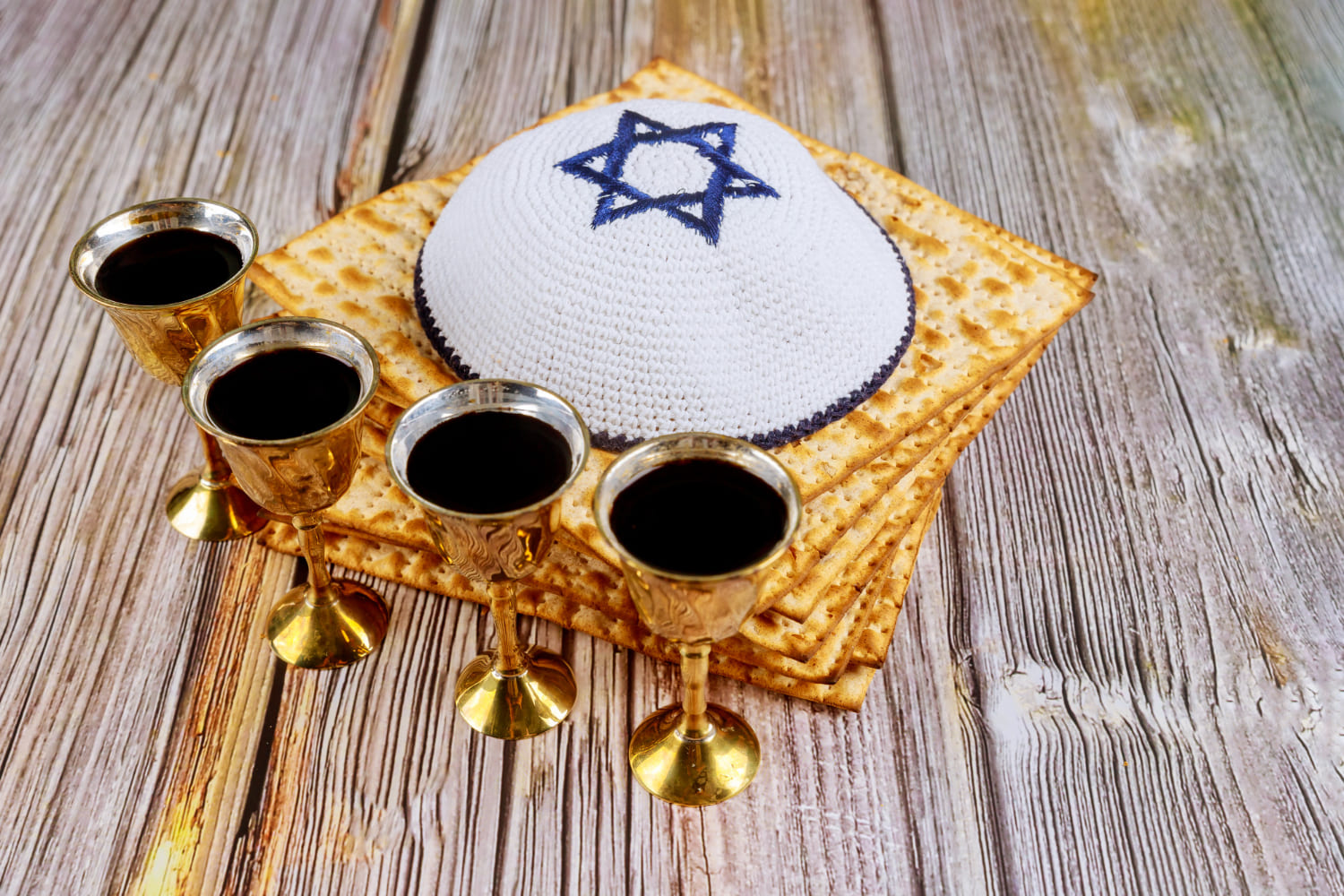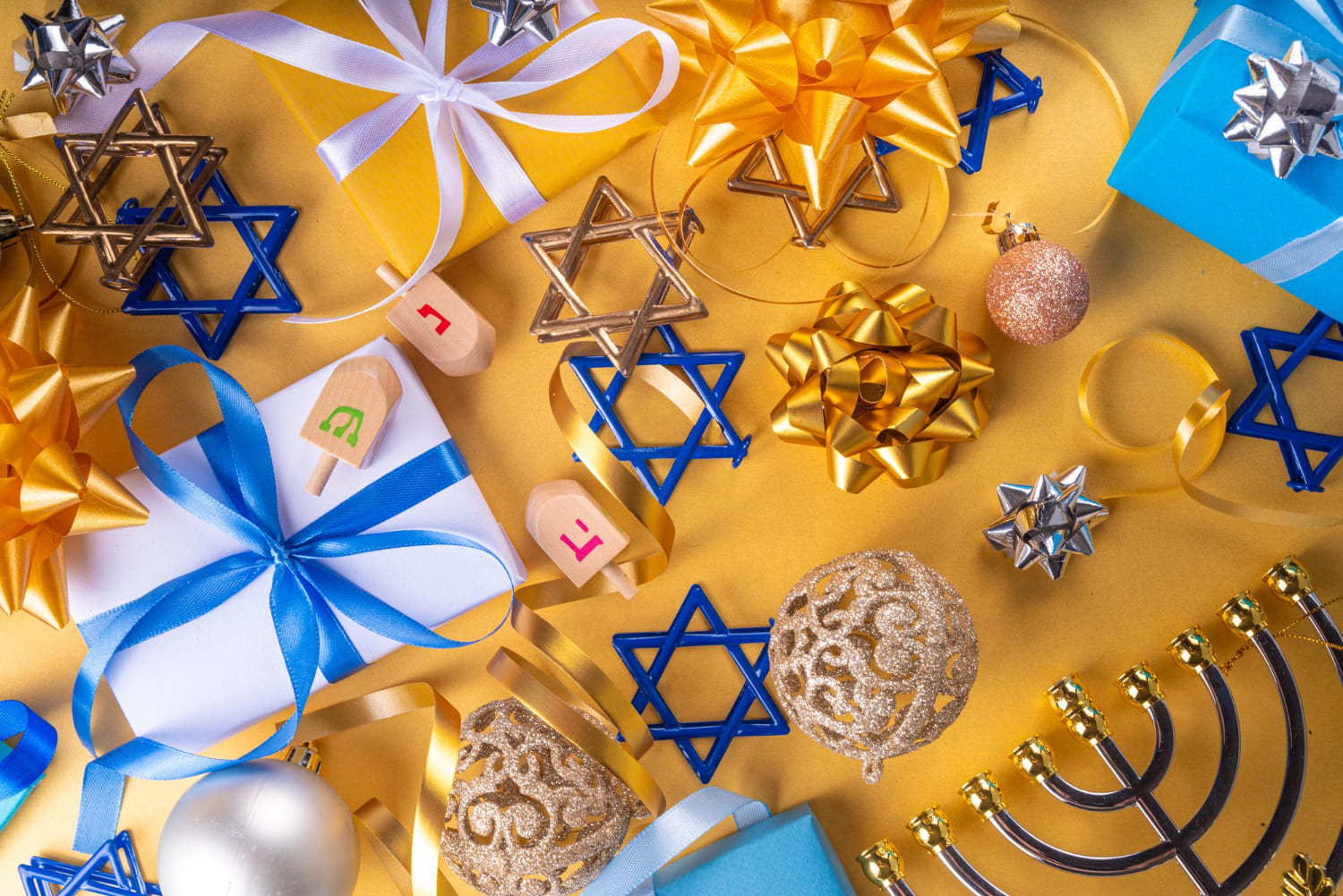Jewish prayers for the dead are an important part of Jewish mourning rituals. These prayers are recited to honor and remember the deceased, and to provide comfort to the living.
There are several different Jewish prayers for the dead, each with its own unique purpose and meaning.
One of the most well-known Jewish prayers for the dead is the Kaddish. The Kaddish is recited during the mourning period, and is a prayer of praise and thanksgiving to God.
It is often recited in memory of a loved one, and is also said during synagogue services. The Kaddish is a powerful and moving prayer, and is an important part of Jewish mourning traditions.
Another important Jewish prayer for the dead is the Yizkor service. This service is held four times a year, and is a time for Jews to remember their loved ones who have passed away.
During the Yizkor service, special prayers are recited, and the names of the deceased are read aloud.
The Yizkor service is a time for Jews to come together and honor the memory of those who have passed away.
- Understanding Jewish Prayers For The Dead
- Significance of Jewish Prayers for the Dead
- The Mourner’s Kaddish
- Yizkor: The Remembrance Prayer
- Origins Of Yizkor
- When To Say Yizkor
- The Yizkor Service
- El Malei Rachamim: The God Full Of Compassion
- Origins Of El Malei Rachamim
- When To Say El Malei Rachamim
- The El Malei Rachamim Service
- Aveilim: The Mourner’s Blessing
- Origins Of Aveilim
- When To Say Aveilim
- The Aveilim Service
- Hashkava: The Lying Down Prayer
- Origins Of Hashkava
- When To Say Hashkava
- The Hashkava Service
- Conclusion
Understanding Jewish Prayers For The Dead
Jewish prayers for the dead are an important part of Jewish mourning customs. These prayers are recited to honor and remember the deceased, and to provide comfort to the mourners.
The most well-known prayer for the dead is the Kaddish, which is recited during the mourning period and at other times throughout the year.
The Kaddish is a prayer of praise to God, and it is not actually a prayer for the dead. Instead, it is a way for mourners to express their faith in God and to affirm their belief in the afterlife.
The prayer is recited in Aramaic, which was the language spoken by Jews during the time of the Talmud.
In addition to the Kaddish, there are other prayers that are recited during the mourning period. One of these is the El Malei Rachamim, which is a prayer for the soul of the deceased.
This prayer asks God to grant the soul of the deceased a place in the world to come, and to grant the mourners comfort and solace.
Another prayer that is often recited during the mourning period is the Psalm 23, which is a psalm of comfort and reassurance. This psalm speaks of God’s protection and care, even in the darkest of times.
Overall, Jewish prayers for the dead are an important part of Jewish mourning customs. They provide comfort and solace to the mourners, and they help to honor and remember the deceased.
Significance of Jewish Prayers for the Dead
Jewish prayers for the dead are an essential part of the mourning process in Judaism. These prayers are recited to honor the deceased and to provide comfort to the mourners.
The prayers serve as a way to connect the living with the dead and to acknowledge the eternal nature of the soul.
One of the most significant prayers for the dead is the Kaddish. This prayer is recited by mourners during the mourning period and on the anniversary of the death.
The Kaddish is a prayer of praise to God, and it is believed to elevate the soul of the deceased to a higher spiritual plane.
Another important prayer for the dead is the El Malei Rachamim. This prayer is recited during the funeral service and is a plea for God’s mercy and compassion for the deceased.
The prayer acknowledges the person’s life and their contributions to the world while asking for forgiveness for any sins they may have committed.
In addition to these prayers, there are other customs and rituals associated with mourning in Judaism. These include tearing one’s clothing, lighting a memorial candle, and sitting shiva.
All of these practices are designed to help the mourners process their grief and honor the memory of the deceased.
Overall, Jewish prayers for the dead are an essential part of the mourning process in Judaism. They provide comfort and solace to the mourners and serve as a way to honor the deceased and connect the living with the dead.
The Mourner’s Kaddish
One of the most well-known Jewish prayers for the dead is the Mourner’s Kaddish. This prayer is recited by mourners during the bereavement period and to mark the anniversary of a loved one’s death.
The Mourner’s Kaddish is written in Aramaic and does not mention death explicitly. Instead, it praises God and affirms the mourner’s faith in the face of loss.
The prayer is included in all three daily prayer services and is often recited by the congregation as a show of support for the mourner.
The text of the Mourner’s Kaddish has several variations, but the most common version begins with the words “Yitgadal v’yitkadash sh’mei raba” (“May His great Name be exalted and sanctified”).
The prayer continues with a series of praises and blessings for God, and concludes with a plea for peace and comfort for the mourners and all Israel.
While the Mourner’s Kaddish is traditionally recited by mourners for a parent, it can also be recited for other close relatives or friends.
It is a powerful expression of faith and hope in the face of loss and a reminder of the importance of community support during times of grief.
Yizkor: The Remembrance Prayer
Yizkor is a special prayer recited by Jews in memory of their loved ones who have passed away. This prayer is a way to honor and remember the deceased and to ask for God’s mercy and forgiveness for their souls.
Origins Of Yizkor
The origins of Yizkor can be traced back to the 11th century when Rabbi Eliezer ben Joel HaLevi introduced the custom of reciting a memorial prayer during the Yom Kippur service.
This prayer was later expanded to include other holidays such as Passover, Shavuot, and Shemini Atzeret.
When To Say Yizkor
Yizkor is recited four times a year, following the Torah reading on the last day of Passover, on the second day of Shavuot, on Shemini Atzeret, and on Yom Kippur.
These days are known as Yizkor days and are considered to be auspicious times for remembering and honoring the dead.
The Yizkor Service
The Yizkor service is usually held towards the end of the morning service on Yizkor days. The congregation stands up as the prayer leader recites the Yizkor prayer. The prayer is then repeated by the congregation in unison.
During the recitation of the Yizkor prayer, it is customary to pledge a donation to charity in memory of the deceased. This is seen as a way to honor the memory of the departed and to bring merit to their souls.
In conclusion, Yizkor is an important part of Jewish mourning and remembrance rituals. It is a way to honor and remember loved ones who have passed away and to ask for God’s mercy and forgiveness for their souls.
El Malei Rachamim: The God Full Of Compassion
El Malei Rachamim, which translates to “God full of compassion,” is a Jewish prayer for the departed. It is a remembrance prayer that is recited by a cantor at a Jewish funeral.
The prayer is often sung with a haunting melody, which adds to the solemnity of the occasion.
Origins Of El Malei Rachamim
The origins of El Malei Rachamim are not entirely clear. Some scholars believe that the prayer was composed during the Crusades, while others believe that it dates back to the time of the Talmud.
Regardless of its origins, the prayer has become an important part of Jewish funeral services and is recited in synagogues around the world.
When To Say El Malei Rachamim
El Malei Rachamim is typically recited at Jewish funerals, but it can also be recited on other occasions.
For example, it is often recited on the anniversary of a loved one’s death, on visiting the graves of relatives (especially during the month of Elul), or after having been called up to the reading of the Torah on the anniversary of the death of a close relative.
The El Malei Rachamim Service
The El Malei Rachamim service typically begins with the cantor reciting the prayer. The congregation then responds with the words “Amen” or “Ken Yehi Ratzon” (may it be His will).
In some synagogues, the prayer is sung with a haunting melody that adds to the solemnity of the occasion.
After the prayer has been recited, the mourners may recite other prayers or sing hymns. The service may also include eulogies or other remembrances of the deceased.
The purpose of the El Malei Rachamim service is to provide comfort to the mourners and to honor the memory of the departed.
Aveilim: The Mourner’s Blessing
Aveilim is a Jewish prayer recited by mourners during the mourning period.
It is a blessing that acknowledges the pain and sorrow of the mourner and offers comfort and support during this difficult time. The word “aveilim” comes from the Hebrew word “avel,” which means “mourning.”
Origins Of Aveilim
The origins of Aveilim can be traced back to the Talmud, which is the central text of Judaism. In the Talmud, there is a discussion about the importance of comforting mourners.
It states that comforting the bereaved is one of the most important mitzvot (commandments) that one can perform.
When To Say Aveilim
Aveilim is recited during the shiva period, which is the seven-day mourning period that begins after the burial of a loved one. It is also recited on the thirtieth day after the burial and on the anniversary of the death.
The Aveilim Service
The Aveilim service is usually led by a rabbi or a cantor. It begins with the recitation of the Kaddish, which is a prayer that praises God.
The mourners then recite the Aveilim prayer, which is a series of blessings that offer comfort and support. The prayer acknowledges the pain and sorrow of the mourner and asks for God’s mercy and compassion.
The Aveilim prayer is often recited in a group setting, with friends and family members coming together to support the mourner.
It is a powerful reminder that even in the midst of grief and sorrow, there is still hope and comfort to be found in the love and support of others.
In conclusion, Aveilim is a beautiful and meaningful prayer that offers comfort and support to mourners during the grieving process.
Its origins can be traced back to ancient Jewish texts, and it continues to be an important part of Jewish mourning traditions today.
Hashkava: The Lying Down Prayer
Hashkava is a memorial prayer recited in the Sephardi (Italian and Oriental) ritual. The word Hashkava means “laying to rest” in Hebrew. It is a prayer that is recited to remember and honor the deceased.
Origins Of Hashkava
The origins of Hashkava are not entirely clear. However, the prayer is believed to have originated in the Sephardic Jewish community.
The Sephardic Jews are descendants of Jews who lived in Spain and Portugal before being expelled in 1492. The prayer is also recited in the Italian and Oriental Jewish communities.
When To Say Hashkava
Hashkava is recited during the funeral service and at other times of mourning. It is typically recited after the eulogy and before the burial.
The prayer is also recited during the Shiva, which is the seven-day mourning period after the burial.
Hashkava is also recited during the Yizkor service, which is a memorial service held on Yom Kippur, the Day of Atonement, and other Jewish holidays.
The Hashkava Service
The Hashkava service is a solemn and emotional service that is performed during the funeral. The service includes the recitation of Hashkava, as well as other prayers and psalms.
The Hashkava prayer is recited while the body of the deceased is lying in the casket.
The prayer is a reminder that death is a natural part of life and that the deceased will be remembered and honored by their loved ones.
In conclusion, Hashkava is a memorial prayer that is recited to remember and honor the deceased.
It is a solemn and emotional prayer that is recited during the funeral service and at other times of mourning. The origins of Hashkava are believed to be in the Sephardic Jewish community.
Conclusion
In Jewish tradition, prayers for the dead are an essential part of the mourning process. These prayers are meant to help the soul of the deceased find peace and to comfort the living.
The prayers are often said in a group setting, during a special service or at the home of the bereaved.
There are many different Jewish prayers for the dead, each with its own purpose and meaning.
Some prayers focus on asking for forgiveness for the sins of the deceased, while others ask for comfort and strength for the living.
Many prayers are recited during specific times of the year, such as the Yizkor service on Yom Kippur.
It is important to note that while Jewish prayers for the dead are an integral part of the mourning process, they are not the only way to honor the memory of the deceased.
Acts of kindness, charity, and good deeds are also considered a way to honor the memory of those who have passed away.
Overall, Jewish prayers for the dead provide a way for the community to come together and support each other during a difficult time.
They offer comfort and hope for the living and help to ensure that the memory of the deceased is never forgotten.
